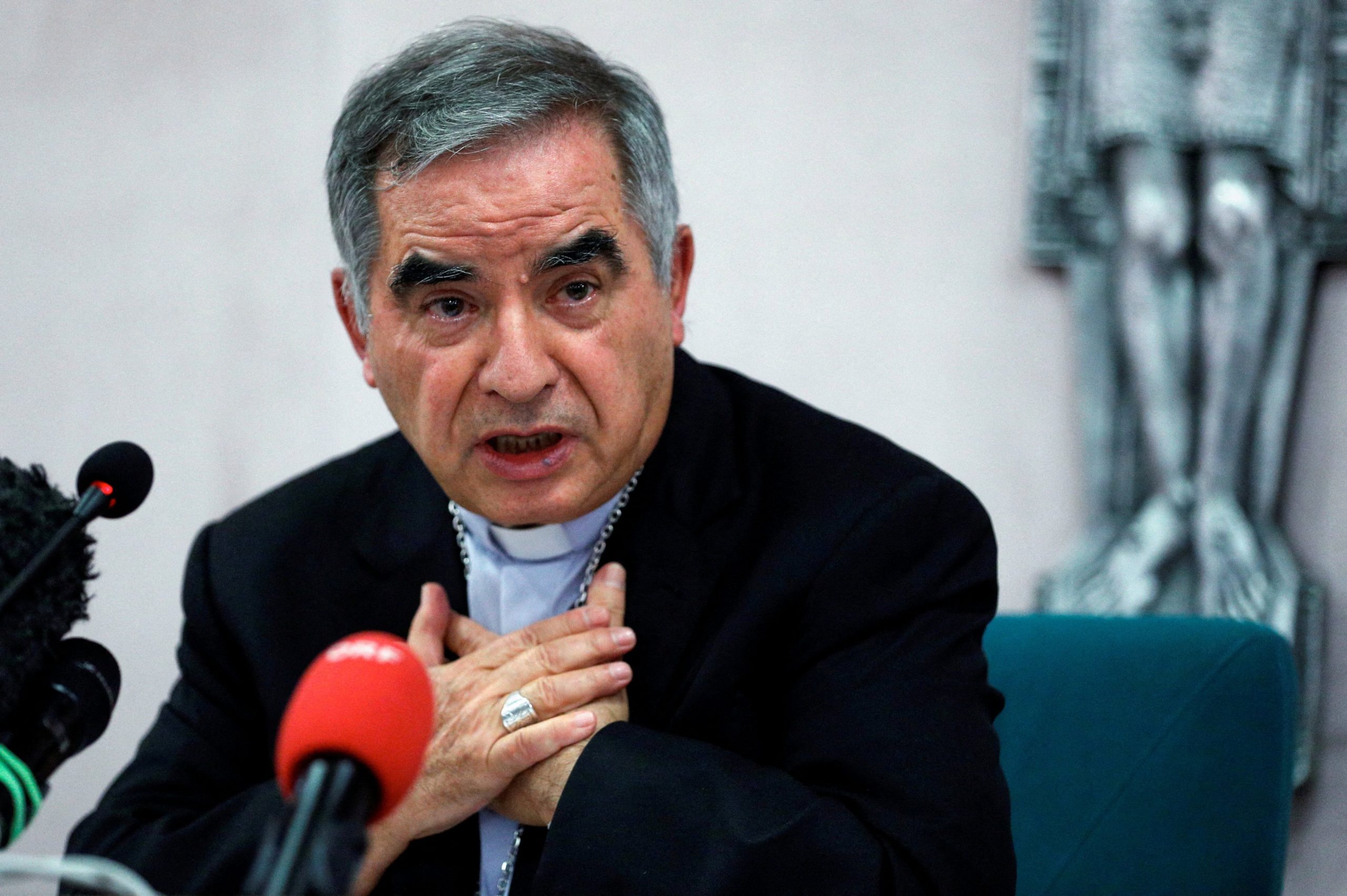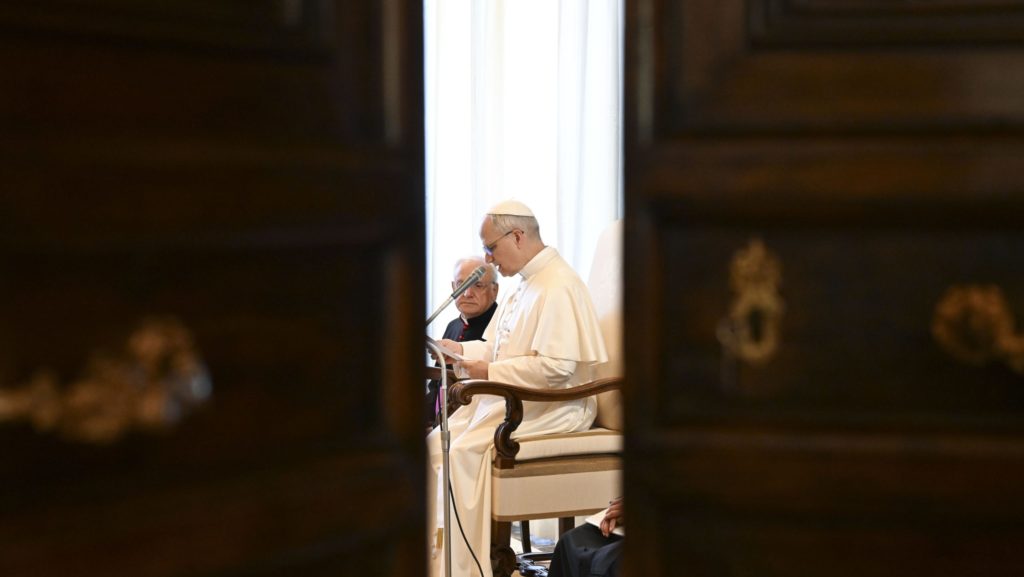ROME — Among the reasons which may have induced an overwhelming majority of the 133 cardinals in last month’s conclave to select Robert Prevost as Pope Leo XIV, it should not be overlooked that the new pontiff holds both a licentiate and a doctorate in canon law from Rome’s Dominican-run Angelicum University.
That wasn’t the main reason, of course. Plenty of prelates have a background in canon law, and the logic for Prevost undoubtedly had more to do with his reputation for balance, global vision, and personal stability, with his legal training merely a plus.
Yet it’s plus with teeth, because there are three legal conundra facing Leo right out of the gate. It will be fascinating to see how his precise mind — recall, too, his background in mathematics from Villanova — will resolve them.
First up is the case of Father Marko Rupnik, the infamous former Jesuit accused of spiritually, psychologically, and sexually abusing dozens of adult women over a period of 30 years.
Rupnik was briefly excommunicated in 2020 for the crime of hearing the confession of someone with whom he’d had illicit sexual relations, though that punishment was lifted almost as soon as it was imposed. He was later expelled from the Jesuits after an investigator for the order found the charges against him credible, but it was only in 2023 that Pope Francis decided to waive the statute of limitations in Church law for prosecuting such crimes and allow a case against the celebrated artist-priest to move forward.
Note well that the late pope permitted forward motion but did not compel it, which may explain why almost two years later, so far as we know, the Dicastery for the Doctrine of the Faith is still in the preliminary stages of a prosecution, attempting to put together a tribunal of judges to hear the case.
Aside from bureaucratic sloth, and setting aside for the moment the conspiracy theory that Rupnik is still being protected by allies in the system, the tentativeness of the prosecution may also reflect a legal lacuna that Leo will be challenged to address.
By now, the Catholic Church has adopted a system of more or less swift and sure justice when the crime of sexual abuse involves a minor. But when it’s a matter of adults, things are considerably less definitive, and it may be that the Rupnik case prompts new legislation to address that imbalance.
One recent hint may have been the decision to remove all images of Rupnik’s artwork from Vatican Media websites, where they had remained for months despite protests from abuse survivors and advocates. Many observers have read the move as a possible harbinger of things to come.
Second up is resolving the canonical status of Opus Dei after the group submitted a new proposed set of statutes to the pontiff on June 11. That submission came in the wake of a May 14 meeting between Leo and the top two leaders of Opus Dei, just six days after Leo’s election.
The proposal caps a three-year process of study, refinement, and occasional behind-the-scenes tensions over how to understand the nature of a personal prelature, the canonical category of which, to this day, Opus Dei remains the lone instance.
On the one hand is 82-year-old Italian Jesuit Cardinal Gianfranco Ghirlanda, who was in effect the court canonist under Francis and who took a somewhat dim view of the legal singularity of Opus Dei. He insisted that a personal prelature is essentially a body of clerics, to which laity may be informally associated for certain matters while remaining fully under the jurisdiction of their local diocese.
Although no one at Opus Dei disputes that for routine pastoral matters, laity of the prelature are also members of their diocese, they do vigorously contest the idea that the prelature is basically just its priests. They insist that notion contradicts the founding vision of St. Josemaría Escrivá, who saw Opus Dei as primarily a lay reality to which certain members would be called to the priesthood in order to serve the group’s spiritual and sacramental needs.
How Leo chooses to thread this needle will be important, and not just for the future of Opus Dei.
At the moment, there are proposals for other groups that cross international borders and bring together clergy and laity to adopt the profile of a personal prelature, including ministries to both the Roma people (often disparagingly termed “gypsies”) and to the Filipino diaspora, as well as pastoral care of seafaring groups. Should any of those possibilities come to pass, the precedent Leo sets now with Opus Dei will be consequential for them as well.

Finally, there’s the perplexing case of Italian Cardinal Angelo Becciu.
Becciu, of course, is the lone cardinal ever to be tried and convicted by the Vatican’s civil tribunal for his alleged crimes in three different cases: first, the failed $400 million purchase of a London property by the Vatican’s Secretariat of State, a transaction that began while Becciu was still the sostituto, or second in command; the transfer of roughly $100,000 from Peter’s Pence to a charity in his native Sardinia run by his brother; and other transfers to a security consultant, Cecilia Marogna, for the liberation of a nun kidnapped by Islamic militants, some portion of which ended up purchasing luxury goods for Marogna instead.
Although he was sentenced to five-and-a-half years in prison by the Vatican court, Becciu from the beginning has maintained his innocence, and he has a following among many fellow cardinals who spoke to Leo both before and after the conclave, insisting the procedural irregularities under Francis meant that Becciu had been pre-judged and denied a fair trial.
Becciu’s appeal before the six-judge Vatican appeals court is set to begin Sept. 22, and it remains to be seen if Leo will issue any tweaks or clarifications intended to bolster perceptions of a fair trial.
More basically, the real question is what happens if Leo’s acute legal mind turns to the underlying dilemma raised by the Becciu case, which is how any prosecution can be said to be fair in a system in which the accusing party, meaning the executive branch of government, is also the supreme legislative and judicial authority.
If Leo does come to face that seemingly inevitable question, there are three basic options at his disposal.
One is to ignore it or paper it over; the second is to provide for a genuine separation of powers in the administration of civil justice in the Vatican, voluntarily renouncing the pope’s authority over the judicial system; and the third, potentially the most satisfying for all involved, would be to take advantage of a rarely utilized provision of the 1929 Lateran Pacts to have Italy prosecute civil crimes that take place on Vatican territory, thus removing the pope from the equation altogether.
None of these questions are easy to answer, but then again, Leo had to know the job was dangerous when he took it.
How he chooses to bring his own legal acumen to bear on each of these three situations, all rich with precedent-setting possibilities, will say a great deal about the early direction of his pontificate.

